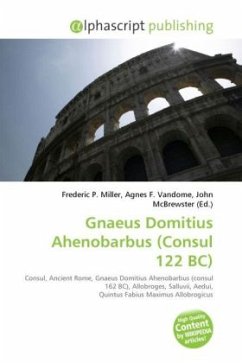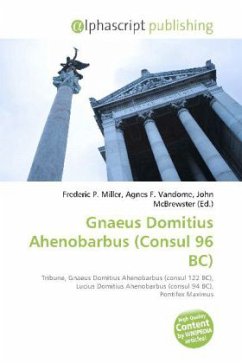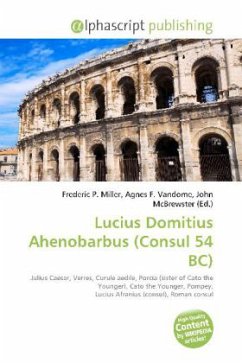High Quality Content by WIKIPEDIA articles! Gnaeus Domitius Ahenobarbus (d. 104 BC) was consul of Rome in 122 BC. He was the son of the Gnaeus Domitius Ahenobarbus who was consul in 162 BC. In the year of his consulship he was sent against the Allobroges in Gallia Transalpina, under the pretext that they had had received Rome's enemy, Teutomalius, king of the Salluvii, and had laid waste to the territory of Rome's allies, the Aedui. Rome s desire to create a secure land route to their provinces in Spain through Gaul was more likely its real reason for entering Gaul. He and Quintus Fabius Maximus Allobrogicus conquered the Allobroges and their ally, Vituitus, king of the Arverni, near Vindalium, at the confluence of the Sulga and Rhone, winning the battle mainly through terror caused by war elephants. He erecting trophies to commemorate his victory, traveled on an elephant in procession through the province, and was honored with a triumph in 120 BC, at the fore of which he paradedthe captive Vituitus. As censor in 115 BC, he expelled twenty-two senators from the senate. He is most famous for constructing the Via Domitia (cir. 118 BC), connecting Rome to her provinces in Spain.








